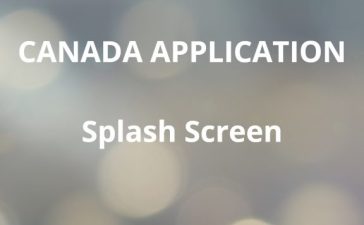Dear all,
If you’re planning on going to graduate school, you’ll probably need to take the GRE test (or the “Graduate Record Exam”). It’s the most commonly required admission test for grad school. … The purpose of each GRE examination, of course, is to help graduate schools decide if you’ve got the right stuff for their program.
In this article, you will try to get answers of all of your queries !! So , Enjoy Reading and learning from HOME !!!
What is GRE?
Graduate Record Examination is an important exam that you are required to give for admission to most graduate schools in the US. It is a multiple choice, computer-based, standard examination that tests your basic mathematical skills like algebra, arithmetic, geometry, data analysis and your vocabulary. It tests your critical thinking skills and analytical skills. It also tests your ability to write a coherent essay and explain your point of view. As an engineering student, you will be giving the GRE general test.
Structure of GRE
GRE has 3 types of sections:
- Analytical writing
- Quantitative reasoning
- Verbal reasoning
In the Analytical writing section, you have to write 2 essays – Issue and Argument in half an hour each. In the Issue essay you will be given a statement and you have to write an essay on whether you agree or disagree with it and why. In the Argument essay, you will be presented with an argument and you must write down why that argument is invalid and what flaws it has.
In Quantitative Reasoning, you will have to answer multiple choice mathematical questions on basic arithmetic, algebra, geometry, etc. There will be 2 quantitative reasoning sections and you get 35 minutes for each. There are 20 questions in each section.
In Verbal Reasoning, you will have three types of questions:
Text Completion – or fill in the blanks with the appropriate words. You will answer with two or three options as this has multiple correct choices. You must mark all of them.
Sentence Equivalence – You have to answer with a synonym for the underlined word in the sentence given in question. It has a single correct choice.
Reading Comprehension (RC) – You will be given passages and based on that you have to answer questions.
There are 2 sections of verbal as well. There are 20 questions in total each section.
You will also have an Unscored or Research section. Unscored section can be either quant or verbal and you will not know which section is unscored. Research section is used for research purposes by the ETS.
Usually the test pattern will be:
- AWA section
- Quant/verbal section
- Verbal/Quant section
- Quant/verbal section
- Verbal/Quant section
- Quant/Verbal Section
You may get a research section in place of the extra Quant/verbal section.
This will take approximately 4 hours in total. And you get 10 minute break after the fourth section.
GRE scores
The scores range from 130-170 for verbal and quant. The scoring is based on the difficulty level of the questions asked. If you score well in the first section, your next section will be difficult and you will get higher marks for each correct answer. If you don’t score well, you get an easy section with less score per correct answer. The score range is 0-6 for AWA. Usually, high scored essays are 500-600 words in length and have very little grammatical mistakes and have good structure and vocabulary. You will get your tentative score for Quant and verbal at the end of exam. GRE can be given as many times as you want and you can send only the scores you want to send to the college of your choice.
Validity of Score: These scores are valid up to 5 years.
Cost / Financial Planning
It is 205 dollars as of now. It includes sending scores to 4 universities. You have to pay 40 dollars if you wish to send it to others. And you usually will since people normally apply to 7-10 universities.
What is the right time to give the GRE???
Now, in my opinion the end of fourth semester is the best time to give GRE. Because the second year has a lighter workload and you have enough time to retake it in case you didn’t score as much as you wanted to. Then you can focus on your electives in fifth and sixth semester and profile building. Don’t be later than sixth semester however, since application deadlines start around November when you would probably be in the middle of seventh semester.
How I should Prepare ?
For Verbal: Read, read, read. I cannot stress this enough. Don’t like reading books? Read the newspaper. Read a magazine. Read some blogs. But please just read. It has two benefits: it naturally increases your vocabulary and your reading speed increases. Both of these are very important to score well in this section. To improve vocabulary further learn words from Norman Lewis book, from Manhattan 5lbs, from Maghoosh apps etc. There are lots of online resources available for this.
For RCs, read and practice. Reading is most important for this section because the comprehension can be long and you must be able to read it in time with good understanding to answer the questions.
For quants :
Practice. There are a lot of resources available for quantitative reasoning. Go through the concepts. Do the ETS official preparation handbook and Manhattan 5lbs. This will probably be easier for you if you are an engineering student. But mind you, a good score in quant is necessary for the same reason. You have to be good at math to do engineering in graduate school. And a lot of people score 170 in this. Try your best to score 165+ but if you’re not that good at mathematics try to at least score 160 or your prospects will decrease considerably.
For AWA
There is a list of topics for the essays available on ETS. Nothing but these will be asked in the exam. Go through them. Pick any random statement for issue and argument essays. Try writing the essays in half an hour each with no breaks in between. Get them checked by a friend or through online essay checkers. Write at least 10 essays each before your examination. Also a lot of sample essays will be available online. Read them if you cannot figure out what to write. But remember you cannot plagiarize it.
Mock test Resource:
Register at kaptest.com/gre. It has a lot of tests that you should start giving a week or two before your exam. Give one of them before 3 weeks to see where you stand and what you improve upon. Give the ETS practice test as well.
Steps for giving the GRE:
Registering for the GRE
You must create an account on ETS (https://www.ets.org/gre/revised_general/register/your_ets_account/).
Then login to your account and register for the GRE General Test. You will have to pay using a credit card. If you are located in Ahmedabad, choose the Prahladnagar centre because that usually works best with minimal issues. Try to register for it a few weeks before so that you get the date and time and location you want.
Choosing universities
You will be asked for the four universities you want to send the scores to for free. Prepare for that the day before the exam and select what universities you want to apply to. Try to have more than 4 based on the score you get at the end.
On the day of the exam
Bring a packed snack and a water bottle with you. Reach the center an hour before your exam. There will be a security check. Your pockets will be turned out, you may have to remove socks. You spectacles will be checked. This will happen everytime you enter the exam hall. You will not be allowed to bring anything with you inside. They will provide you with a locker to put your things in. Your lunch box will be taken by them. They will give it to you whenever you ask for it. You will be provided with a noise canceling headphones inside. Take the 10 minute break even if you don’t want to eat something. Freshen up. Select the universities to send your scores. If you complete any section soon and think you have enough time take a break. Do some deep breathing exercises in the 1-minute break between each section. Once you’ve completed the exam, your score will be displayed.
After the exam
You will get the scores in 10-15 days on ETS. If you feel you haven’t scored well you can retake the test after 21 days. No more than 5 tests are allowed in a year.
Further requirements for graduate school
A good graduate school application has the following things:
Your Transcripts (CGPA)
Your GRE scores
Your Resume – projects, competitions, etc.
Work experience (internships, jobs, etc.)
Research experience (published research if any)
Your Statement of Purpose
Your Letters of Recommendation
GRE, though an important aspect, is not enough for acceptance to a good university. You may even think of it as useful for the elimination round but your entire profile matters. This is not equivalent to the entrance exams in our country where only the scores matter.
Compiled by: Ms. Priya Jain. (GRE score: 336) , 6th Semester, B Tech CSE, ICT, GUNI, & Prof. Rahul Shrimali, Assistant Professor, ICT, GUNI
For more details, visit us : https://www.ict.guni.ac.in/




